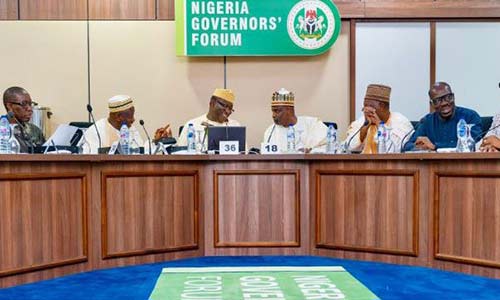LEGAL NEWS UPDATES 27/03/2022
States Head To Appeal Court Over $418m Paris Club Refund

The Federal High Court sitting in Abuja, on Friday, dismissed a suit filed by the 36 states of the federation to stop the Federal Government from deducting $418million from their bank account to settle the Paris Club Refund debt.
The Attorney-General of the states had in the suit marked FHC/ABJ/CS/1313/2021, challenged FG’s decision to withdraw money from the state accounts to settle consultants that facilitated the Paris Club Refund.
The plaintiffs told the court that the FG had insisted that the fund it intends to withdraw from the account monthly, was to service debt for contracts that were allegedly executed for the states.
They told the court that after the said contracts were carefully scrutinized, as well as a purported judgment debt the FG relied on, it was found that the 36 states were not parties to the court action that resulted in the judgment debt.
The AGs maintained that allowing such a withdrawal would cripple the states financially.
Besides, they submitted that the purported contracts claimed to have been executed for the states were not known to any of the 36 state governments and were, therefore, a phoney contract, adding that FG was the only party to the court case that led to the said judgment.
The defendants in the matter were the Attorney-General of the Federation, the Finance Minister, Accountant-General of the Federation and all banks in Nigeria, Central Bank of Nigeria, Debt Management Office, Federation Account Allocation Committee, Incorporated Trustees of Association of Local Government of Nigeria as well as the consultants.
However, the defendants, through their lawyers, including Chief Wole Olanipekun, SAN, Maimuna Shiru (Acting Director, Civil Litigation, Federal Ministry of Justice), and Chief Olusola Oke, SAN, urged the court to dismiss the suit for want of competence.
They described the defendants as meddlesome interlopers, noting that the state governments claimed to be fighting for the local governments, a distinct tier of government, without the consent of the third tier of government.
The FG maintained that its decision to deduct the fund to settle some consultants was based on a previous verdict of the court.
It argued that since the court had earlier decided on the matter, stressing that proceeding with the suit would amount to a high court sitting on appeal over its judgment.
“The plaintiffs have not appealed against the judgment of this court and the High Court of the Federal Capital Territory that the contracts awarded to the consultants are valid,” Shiru submitted.
The FG further told the court that based on an earlier judgement of the court, the former Chairman of the Nigerian Governors Forum, Abdulazeez Yari, issued a promissory note on behalf of the governors to the effect that the $418m be deducted from their money in the federation account.
It further argued that the decision to issue promissory notes to the consultants, as a way of settling the debt owed them, was legitimate, stressing that the plaintiffs could not distance themselves from the decision of the NGF that engaged some of the consultants.
The defendants equally noted that four years after the earlier judgment was delivered, the states had yet to challenge it at the Court of Appeal.
Meanwhile, in his judgement on Friday, Justice Inyang Ekwo held that Attorneys-General, being employees of state governors, lacked the locus standi to institute the suit.
It stressed that the suit did not fall within the purview of section 211 of the 1999 Constitution, as amended, which allows state AGs to independently file an action in court without the express permission of the governor.
More so, the court, observed that both the NGF and ALGON are duly registered bodies that could sue or be sued.
It held that both bodies have the right to file the suit and not the state AGs.
“The Attorney-General cannot sue, except when authorized by the governor”, Justice Ekwo added, noting that the suit exposed the constitutional limit of an AG to institute certain actions.
“The plaintiffs have no legal or statutory power to challenge the case of their employer. Since the Plaintiffs do not have the locus standi, the issue of cause of action does not arise”.
Justice Ekwo held that the suit amounted to an abuse of court process since it sought the review of a subsisting judgement that involved both the NGF and ALGON.
He held that there was evidence that both the NGF and ALGON had indeed entered into an agreement that led to the court judgment.
“The plaintiffs, not being members of the NGF and ALGON, are not proper persons to state what transpired or the agreement that was reached.
“On the whole, I do not see any merit in the case and I accordingly dismiss it as lacking in merit”, the court held.
Counsel to the plaintiffs, Jubril Okutekpa, SAN, said his clients would take the matter to the Court of Appeal.



